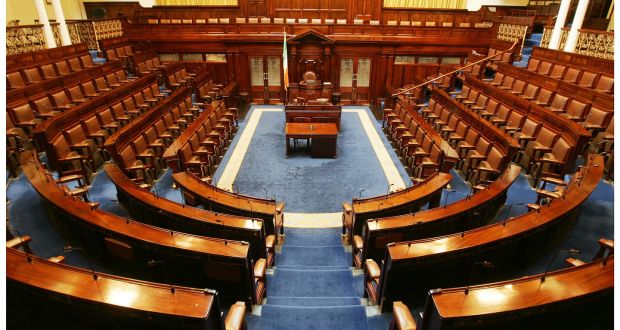I think I am not alone in experiencing a good deal of Covid news fatigue. The problem is that we feel collectively helpless as the infection rates defy predictions made 6 weeks ago by our experts. The present spike in daily projections will have hospitalisation consequences, ICU consequences, and, sadly mortality and long-Covid consequences.
The Government is in an unenviable position. We have opened up the economy and the winter season is upon us in terms of indoor conditions and increased probability for transmission. We had decided collectively in the aftermath of a successful mass-vaccination programme to “live with Covid” – even if that is a euphemism for some people dying from Covid.
Because of the unique Irish vulnerability caused by a very low ICU capacity in our health services, the HSE and the Department of Health rightly fear that the hospital system could be overwhelmed by a sustained wave of high transmission and infection.
But what is to be done about that? One obvious answer is to massively accelerate the booster vaccination programme for older cohorts in the population. Hesitancy about adopting that course over the last 6 to 8 weeks has been difficult to understand. Ministerial impatience with NIAC’s lack of apparent urgency in recommending immediate and widespread booster vaccinations is understandable. Have we adopted the precautionary principle or have we just prevaricated? The precautionary principle would suggest acceleration of the booster programme rather than ponderous hesitancy.
Will tweaking of regulations in relation to night-life in pubs, clubs and restaurants have any discernible effect at this point? Watching the All Blacks and Portugal fixtures from the comfort of a couch, you couldn’t help wondering about possibilities of increased transmission. And the same applies to countless other sporting venues.
For my part, I have no difficulty with showing my vax-cert to those controlling admission to absolutely any venue where an elevated risk exists. But I really think that some of the restrictions lack reality. What is a pub to do with all those phone numbers? What would or could they do if, by some chance, they learned that a recent customer had contracted Covid? Contact all persons in the premises and ask them to self-isolate or get an antigen test? Or are they supposed to remember who was sitting near whom?
Stephen Donnelly has indicated that he intends to initiate primary legislation to empower the Government to extend the emergency Covid period further. I believe that the great majority of Oireachtas members want to see real accountability if these emergency powers are to be extended.
Last year, there was a special Dáil Covid committee ably chaired by Michael McNamara TD. But it was dissolved in favour of the wholly inadequate variety of sectoral departmental committees with very wide responsibilities and agendas.
We had a ridiculous situation in which members of the media were given the opportunity to put questions at daily press briefings to members of NPHET complete with broadcast snippets of sign-language, but members of the Oireachtas had to rely on third-hand media reports for real information.
The constitutional justification for Health Act regulations and other similar restrictions is that they are “delegated legislative” provisions made within broadly stated statutory policy parameters by ministers who are accountable to the legislature.
But in reality this is total fiction. With our tightly- whipped parliament, primary emergency legislation is guillotined through the Houses of the Oireachtas while hugely far-reaching delegated regulations are signed into law by a minister without any prior legislative scrutiny at all.
Theoretically, a majority in either House could vote to annul such regulations; but any member of the Coalition parties who defied the whip to do so would face automatic expulsion from his or her parliamentary party, and forfeiture of membership of parliamentary committees, and a huge loss of speaking rights in parliamentary debates.
I think it essential that any prolongation of these emergency powers be accompanied by a legal condition that there must also be established a comprehensive system of ongoing and immediate parliamentary oversight of government policy, regulations and implementation by a specialist committee that meets weekly or more often for the duration of the emergency. Likewise, all public official, elected or unelected, including members of advisory bodies such as NIAC and NPHET should be immediately amenable to and compellable before such a committee.
If, as is the case, we are dealing with an emergency, there must be a correspondingly urgent system of real-time accountability and real discussion at a transparent, political level of our options, our data, our effectiveness, and the social and economic consequences of what we are doing.
Cabinet-room discussion and reaction on Liveline is not what a constitutional democracy needs or deserves.
We can’t afford another lockdown of the scale we have known in last 20 months.

